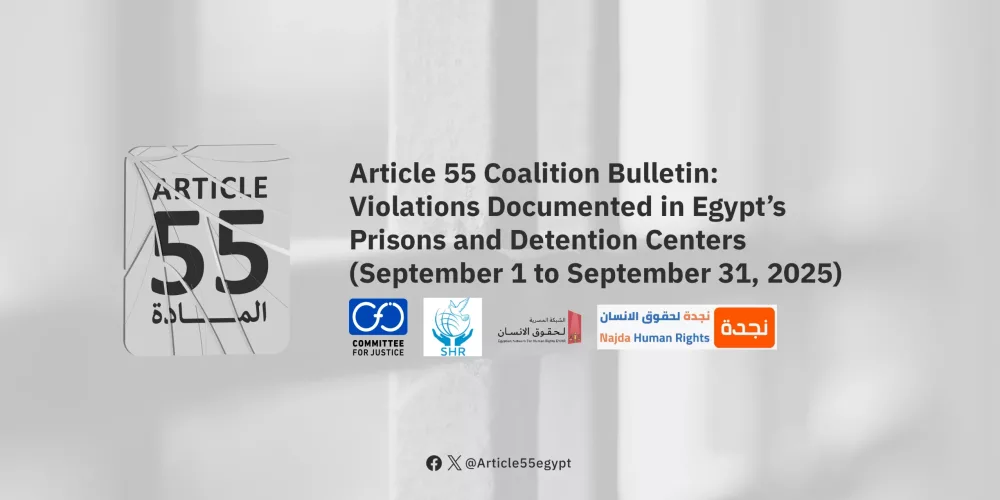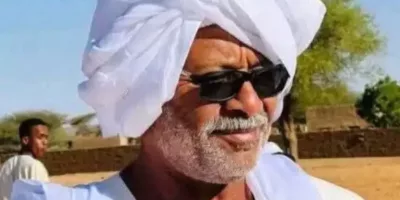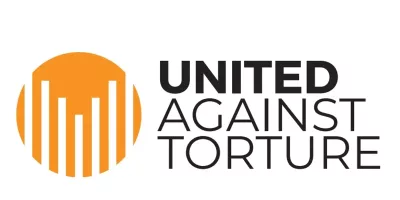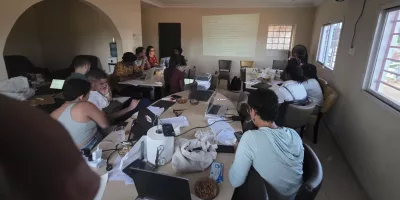Article 55 of the Egyptian Constitution states: “Anyone who is arrested, detained, or whose freedom is restricted must be treated in a manner that preserves their dignity. They may not be tortured, intimidated, coerced, or physically or psychologically harmed. Detention or imprisonment shall only take place in designated facilities that are humane and healthy…”
Developments in Egypt in September 2025
September 2025 witnessed a wave of political, economic, social, and human rights developments that reflected the persistence of internal crises amid a complex regional landscape. The siege and war on Gaza continued, and humanitarian aid stockpiled in Sinai remained blocked despite repeated attempts to deliver it. This prompted activists to announce the launch of the Global Solidarity Flotilla, departing by sea from Barcelona and heading to several countries before attempting to reach Gaza to break the blockade. The flotilla comprised 50 small vessels and 300 activists from 44 countries. Some of its ships were attacked while still docked in Tunisia, and the entire mission was ultimately prevented from reaching Gaza. The military strike on Qatar triggered widespread international solidarity, denouncing the violation of sovereignty. This raised concerns about potential strikes targeting faction leaders in Egypt. However, reports indicated that such a scenario was ruled out, especially after Egypt warned against targeting any negotiators on its territory. A summit was held in Qatar, but it failed to meet the aspirations of the people in terms of halting the war and deterring further aggression.
On the economic front, UN Special Envoy for Financing Development Mahmoud Mohieldin stated that the Egyptian economy has spent the past decade revolving around crisis management. He emphasized the need to adopt a new path, independent of the International Monetary Fund, given stagnant growth rates and the inability of current programs to meet the population’s needs. Professor Medhat Nafeh of Cairo University added that interest payments on public debt have reached EGP 1.9 trillion, consuming half of the state’s expenditures. He proposed a smooth exit from the IMF program without tension or abrupt withdrawal. Additionally, the beginning of the academic year placed a financial burden on families, as they struggled to cover school expenses and supplies, increasing pressure on many Egyptian households.
Security crackdowns and judicial targeting of citizens and human rights defenders continued at their usual pace. Although a decision was issued to release activist Alaa Abdel Fattah, which was met with widespread joy in human rights and political circles, researcher Ismail Alexandrani was simultaneously arrested at a checkpoint while returning from Marsa Matrouh. He was referred to the Public Prosecution, which ordered his detention. Alexandrani had previously served a seven-year prison sentence, and was charged again with “spreading false news,” based on posts from his Facebook account. Similarly, Sinai activist Saeed Atiq was imprisoned over a Facebook post, facing charges of “spreading false news.” A second trial was held for Dr. Abdel Moneim Aboul Fotouh, and a third for Mohamed El-Kassas, in newly fabricated cases prepared during their solitary confinement. The Supreme State Security Prosecution also ordered the release of Ahmed Douma on bail of EGP 50,000, after interrogating him on charges related to “publishing and broadcasting false news.”
The new Labor Law came into effect on September 1, 2025, replacing Law No. 12 of 2003. Its enactment sparked controversy and concerns regarding workers’ rights. President Abdel Fattah El-Sisi exercised his constitutional powers to return the draft Criminal Procedure Law to Parliament, citing “deep flaws” in some of its articles. This move reflects the authorities’ sensitivity toward legal amendments that may provoke debate around freedoms, safeguards, or the powers of security agencies.
The Tosson area in eastern Alexandria has become a hotspot for local tension in recent months, following government plans to construct a new road linking the Mahmoudiyah Axis to Abu Qir. This project may result in the expropriation and demolition of large residential areas, including hundreds of homes and religious institutions. In protest, residents placed banners and posters on their homes rejecting the demolition and survey decisions. However, plainclothes personnel reportedly removed these materials, which residents viewed as an attempt to silence their voices. Recent days also witnessed confrontations between residents and local officials. The head of Montaza II District refused to meet with a delegation of residents seeking clarification about the fate of their homes. Additionally, the head of investigations at Montaza II summoned several residents and warned them against “politicizing” the issue, urging them not to organize collective actions that could be interpreted as political, according to attendees.
Thirteen workers lost their lives and 38 others sustained injuries ranging from moderate to severe due to a boiler explosion at the Bashbishy Spinning Factory in El-Mahalla El-Kubra, Gharbia Governorate. Approximately 4,000 workers at Egypt Aluminum in Nag Hammadi, Qena, launched a strike in protest against the reduction of their annual profit shares. Several retaliatory measures were also documented against members of the labor union committee at El-Shourbagy Spinning and Weaving Company, including the suspension of their union activities, dismissal from work, and denial of financial entitlements.
Deaths inside prisons and detention facilities continued, with causes ranging from suspected torture to medical negligence and generally poor detention conditions. Hunger strikes and suicide attempts persisted at Badr 3 Prison, amid a total blackout on the violations occurring inside. Numerous complaints continued to surface regarding abuses in prisons and detention centers.
Summary of violations documented by the Article 55 coalition in Egyptian detention centers – September 2025
The coalition documented the following violations in Egyptian detention facilities during September 2025. Ibrahim Eid Saqr, a self-employed trader from Zawyet Saqr village, Abu Al-Matamir district, Beheira Governorate, died of a heart attack while performing noon prayers in his cell at Wadi El-Natroun Prison. Despite attempts to resuscitate him, he passed away. He was being retried in the case known in the media as the “Housh Eissa Events,” which involved dozens of political opponents. He had received a 10-year prison sentence.
Despite leaked reports of repeated suicide attempts and hunger strikes, Egyptian authorities continue to impose a complete blackout on the situation inside Badr 3 Prison. Families of detainees have been left in the dark, with no information about their loved ones. Detainees have been barred from attending their court sessions, even though the courtroom is located within the adjacent security complex. Authorities cited “logistical difficulties” as the reason, further deepening concerns about their safety and reinforcing the notion that systematic blackout has become a tool of repression. Former Minister of Supply, Bassem Ouda, was reportedly assaulted and verbally abused by Colonel Ahmed Fikry of the National Security Agency inside Badr 3 Prison, in an attempt to force him to end his hunger strike. The officer allegedly threatened to make the prison “worse than Al-Aqrab.” Mohamed El-Beltagy was subjected to severe physical and psychological torture, placed in solitary confinement, and directly threatened that his fate would remain unknown if he died in custody. His son, Anas El-Beltagy, was also reportedly beaten and assaulted.
As usual, the Ministry of Interior denied these allegations. Fifty-three detainees at Abu Zaabal Prison declared an open hunger strike and threatened mass suicide in protest against their forced transfer to New Valley Prison. They demanded to be relocated to facilities closer to their families. Despite their protests, all 53 were forcibly transferred.
Detainee Hisham Mamdouh sent a letter from Khalifa Police Station stating: “After entering my 12th year in the darkness of prison, I’ve come to believe that in our country, a prisoner is punished twice: once by imprisonment, and again by suffering inside prison. This is my second letter. I just want to say I’m already dead, and I’ll end my life because of them.” He described suffering from multiple illnesses for seven months without receiving medical attention. He was assaulted and insulted by a police officer named Ramadan Al-Zafar. When he complained to the supervising officer, Ahmed Abdel Nasser, the response was: “He’s a bit unstable.” Hisham attempted suicide and went on hunger strike. Only after cutting his veins did he receive treatment. He continues to suffer from abdominal pain, back and leg issues, and is denied access to a fan or air conditioning, unlike other detainees. He concluded: “I’m suffocating in this cell. Everything is forbidden. Life has become unbearable. From today, I’m on hunger strike. If I die, don’t be sad. Forgive me… I’m exhausted.”
Conclusion
the organizations of the “Article 55” Coalition affirm that what is taking place inside Egyptian prisons and detention facilities cannot be considered isolated incidents or individual breaches, as claimed by the Ministry of Interior. Rather, it reflects a systematic approach in handling the detainees’ file, particularly those held for political reasons. The coalition further asserts that the policy of impunity adopted by Egyptian authorities toward perpetrators of human rights violations within detention facilities has entrenched these practices and institutionalized them within the prison administration. No official or security leadership has ever been held accountable, despite the repeated documentation of such violations. Moreover, the coalition warns that the continuation of these policies exacerbates concerns over the fate of detainees, especially in light of the growing number of distress calls from inside detention centers and the ongoing deterioration of living conditions. In this context, the coalition emphasizes that detainees possess inherent rights that must not be violated. These rights are guaranteed by national laws and international conventions, foremost among them the right to physical and psychological integrity, the right to adequate healthcare and nutrition, the right to communicate with the outside world—including family visits and access to legal counsel—and the right to challenge the legality of detention before an independent judicial authority. Respecting these rights is fundamental to any criminal justice system that upholds human dignity. Accordingly, the “Article 55” Coalition calls for an urgent investigation into the documented violations; accountability for those responsible, in accordance with Egyptian law and relevant international standards; full adherence to the United Nations Standard Minimum Rules for the Treatment of Prisoners (the Nelson Mandela Rules) and the Egyptian Prison Regulations; an immediate halt to all practices that contravene these standards; and the provision of humane living conditions that preserve the dignity of detainees.
Article 55 Coalition
- Committee for Justice
- El-Shehab Center for Human Rights
- Egyptian Network for Human Rights
- Najda for Human Rights
🔗 https://www.facebook.com/Article55egypt
Skip to PDF content






